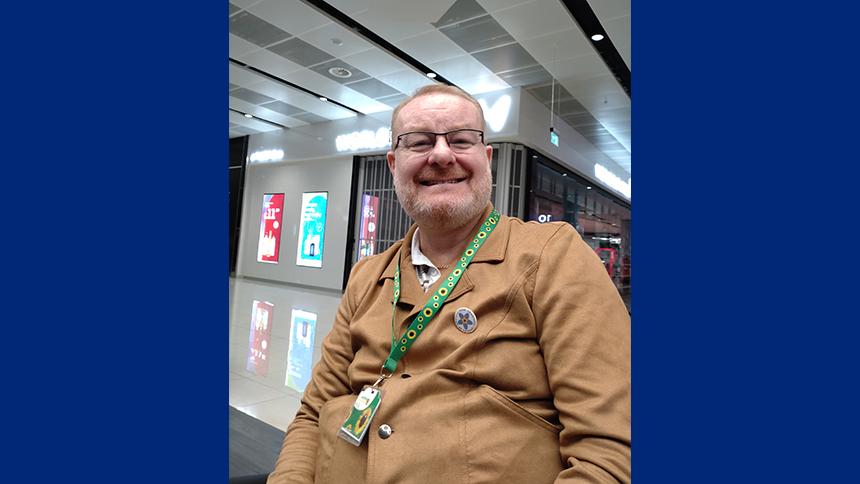Real stories
Why it’s important for people with dementia to ask for help
Michael Booth, in County Durham, wants more people with dementia to find out what help they can get after a dementia diagnosis.
The more I talk about reaching out for help, the more people get back to me to say they found support they never knew was there.
Yes, some areas have more dementia services than others and often people don’t signpost you to what is there. That isn’t how it should be.
However, don’t wait for help to come to you. Have a look, speak to people and find out what’s there.
Maybe there’s something local that isn’t designed for dementia but could still be great.
It could mean you get the exercise you need or get out of the house a little bit more.
Or that you have support come into your home, or somebody to talk to or to help with your finances.

Speaking up about dementia
My mum had Alzheimer’s disease and I was caring for her for 10 years. Like most people at that stage, we kept it quiet. We took care of things ourselves.
I didn’t realise how much support was out there until later on. By that time, it was a bit late. But that’s when I learned to speak up.
When I was diagnosed with young-onset Alzheimer’s, I lost my job and my driver’s licence within the same week. There’s a lot to deal with and a lot of fear.
When you have dementia, you can find ways to live with it. When you get to the point where you can’t do that yourself, hopefully whoever’s caring for you knows what you want and how you want to be cared for.
You need to have been open about it and spoken about it.
Dementia support for all
Sometimes speaking up is very difficult for people living with dementia.
In British culture, we don’t tell people our problems – we’ll struggle on because that’s what we’ve done before. In some communities, people tend to keep things within their family.
But it doesn’t matter what type of person you are, we all need support.
Whether you need something now or you’ll need it in the future, the more you let people know your concerns, the more support you can get.
Be specific about what you need.
Types of support available
Within your local area, there might be a café that you’ve never realised supports people with dementia. Some supermarkets do quiet times or can assign somebody to walk around and help you.
Some of the best resources I’ve got are down south – they’re miles away, but we’re able to talk online. If you’re not technologically inclined, is there somebody who can help you with using technology?
Meet other people with dementia. We’re not the only people going through this, so there will always be somebody there who can help and guide us.
I’ve been able to put people in touch with others who can help them with things like benefits.
Find those key people who can help you – take control and seek them out.
Find support near you
From activities and social groups to dementia-friendly transport, our dementia directory can help you find support services local to you.


Ginger Smith
says